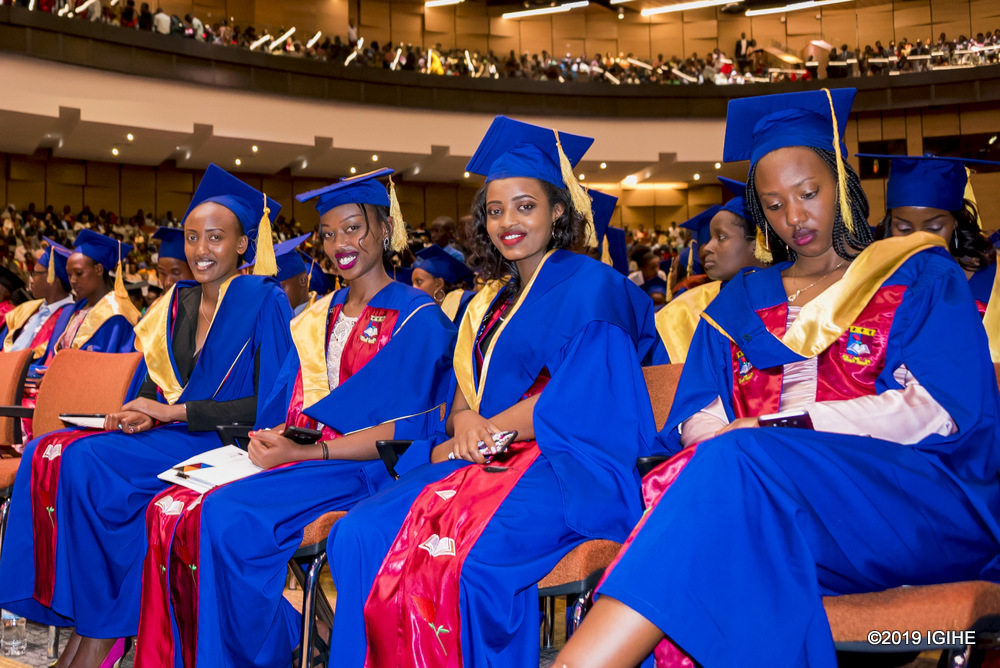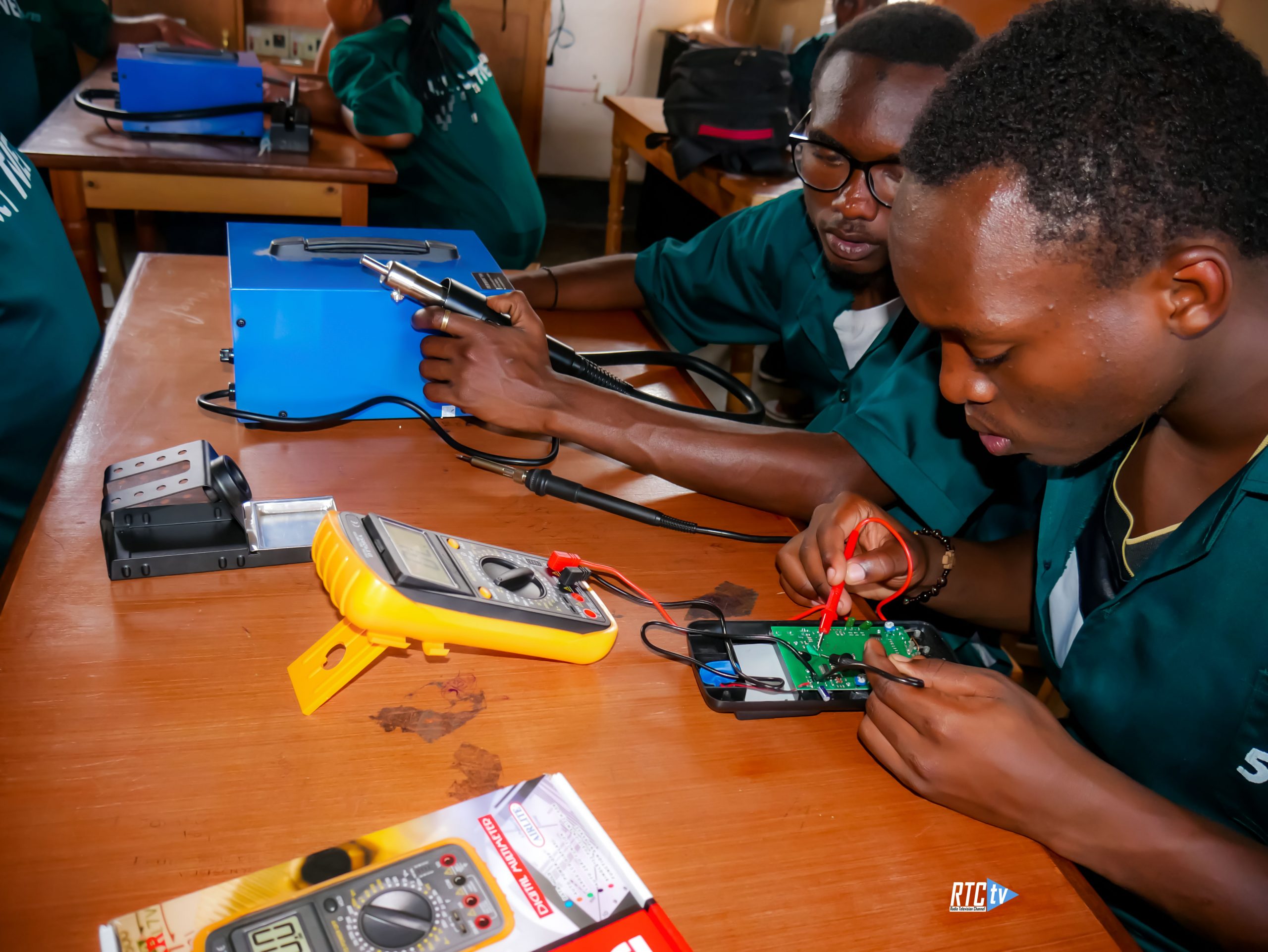The Ministry of Education recently announced examination results. This news evoked mixed emotions in many students and parents, and rightly so.
Many of these graduates will go on to play important roles in shaping our history as well as shaping Rwanda’s future.
So, it is fitting that we celebrate their graduation not just by looking back on past achievements, but also thinking about the future.
As both a parent and a believer in the power of education, it is important to focus on the future of education in Rwanda.
Every year we see our youth graduate. But what does this mean beyond the graduation gowns and release of results? We all know the world is changing, so how should our education system in Rwanda evolve, to better prepare our students for this new world?
To answer this question, we will need to think first about what the future holds for all of us. No one can predict the future.
The phrase “This Time is Different” is sometimes regarded as the four most dangerous words in Finance, because there are many instances where someone said, “This time, it is different, so you better invest”.
These predictions have turned out to be wrong with disastrous consequences for investors.
But there is good reason to believe that we are entering a new phase, and the world as we know it will be quite different at some point during our lifetime, and possibly within the next 10-20 years.
What are some of these changes? We can expect a more complex and fractured world.
Across countries, we see the international order becoming less benign and more unpredictable, and tensions and rivalry amongst great powers will continue to rise.
Within countries everywhere, there is a sense of growing divisions and inequalities, of tribalism within organisations, and people sorting into “us” vs “them” camps.
Meanwhile, we continue to see the relentless advance of the digital age.
COVID-19 intensified and accelerated many of the large-scale societal, economic and technology trends. There is more information generated in a year today than in all the previous existence of humankind on earth.
Our ability to harness this information is also increasing because the cost of processing, bandwidth, memory, sensors are falling exponentially; and therefore you see the rise of machine learning and Artificial Intelligence (AI).
The fact is that we are only scratching the surface of what these technologies can help us accomplish; there are still tremendous benefits to be reaped, but we also know that it will be a bumpy journey ahead with major disruptions to businesses and workers everywhere.
What Does All This Mean for the Future of Education?
We know there is no single way, there is no single formula for preparing our young for this new and more complex future. But let me outline four broad strategies to build on what we have achieved in education so far, and to seek further improvements in our system.
First, we must ensure that education remains an uplifting force for society. We all know that the first few years of life are critical. So we must start early and ensure that every child gets a good start, and that is why the Government must invest significantly in preschool affordability, accessibility and quality.
We must invest more to even out the differences early in life, and give children full access to appropriate health, learning and developmental support.
Second, we have long recognised that every child is unique, and we need different approaches to help them learn and grow.
So we talk about multiple pathways, and that is an area we must continue to work on. Over the years, we have created a wide range of options for our students, and they can find the option that suits their strengths, learn at their own pace, and do their best.
For example, for those with specialised interests, we have NUR Science School, we have School of Science and Technology, the School of Medicine, and even the School of the Social Sciences etc.
For those who thrive in a more practical, hands-on learning environment, there are the IPRCs and polytechnic.
In short, every school across Rwanda must have its niche areas where they excel, and so that there is excellence across the board in our system. But this work is never complete, and we must continue to strive for many more peaks of excellence.
Thirdly, we need to develop attitudes and skills beyond book knowledge. People worry about robots taking over from humans in the digital age, but there are many things that humans do, that robots and machines will never be able to do.
So the way forward for us is to continue to emphasize our competitive advantage and our human strengths: our ability to build relationships with one another, to collaborate and work in teams, to be able to think creatively, to keep on learning spontaneously, serendipitously, to brainstorm and challenge one another and then develop better solutions together. These soft skills may sound like the most natural things in the world and everyone can do that, but in fact, they ought to be practiced continuously.
Fourth, we will need more pervasive interdisciplinary learning to support career mobility learning and cognitive agility. We need to do this to prepare Rwandans for a more dynamic and uncertain future. This concept of interdisciplinary learning is not new. The debate over the breadth and depth of learning has recurred over the centuries.
The earliest institutions of learning emphasized broad-based knowledge. Scholars like Aristotle wrote about a wide range of subjects – from logic to ethics, to rhetoric, to mathematics, to political theory, to physics, a whole range of subjects.
This is not just in the West, because if you look around the world at that time, in the medieval world, wide-ranging knowledge was held in high regard.
The explosion of knowledge, particularly in the digital age, making it impossible for any single person to keep up with what is happening in even a few disciplines. Maybe you have a polymath genius who can straddle a few, but even so, it is very difficult.
We must therefore prepare students to appreciate the realities of life, where many issues are complex and cross-cutting. Problems in the real world cannot be solved by an engineer alone, or an architect or a scientist, or anyone from a single discipline —they need different skill sets to come together.
In summary, Rwanda’s continued success and the quality of our education system are, I believe, inextricably linked. Rwandans are our only natural resource, and we must do everything we can to prepare every child and every worker for a world of change and opportunity. Because, for a small country, this is an investment that is worth making.
As a nation, by making such investments, we can maximise our human capital and capabilities. But more importantly, as individual Rwandans, we can realise our human potential, fulfil our aspirations, and lead more meaningful lives.
We all know that this year has been a tumultuous year, it has been an exceptional year, but I would say this: it is often in our darkest hours that we find motivation and strength to evolve and emerge stronger. This is true for everyone, it is just human nature.
When things are comfortable, it is so easy to just settle back for the status quo, and there is a reluctance to push yourself out of your comfort zone. But when we talk about transforming our education system, it is necessary to get out of the comfort zone.
The author, Liban Mugabo, is a political and social commentator.




















